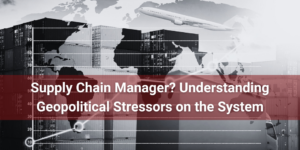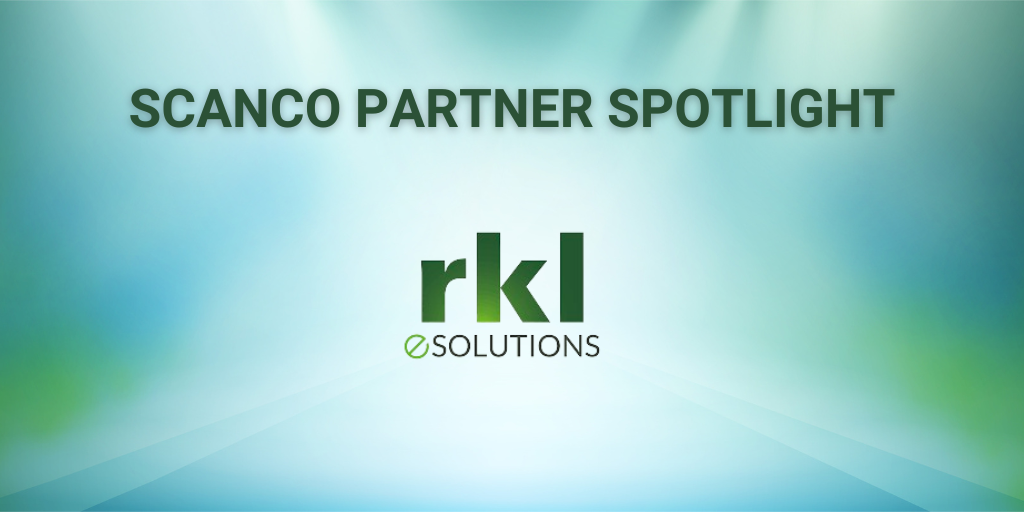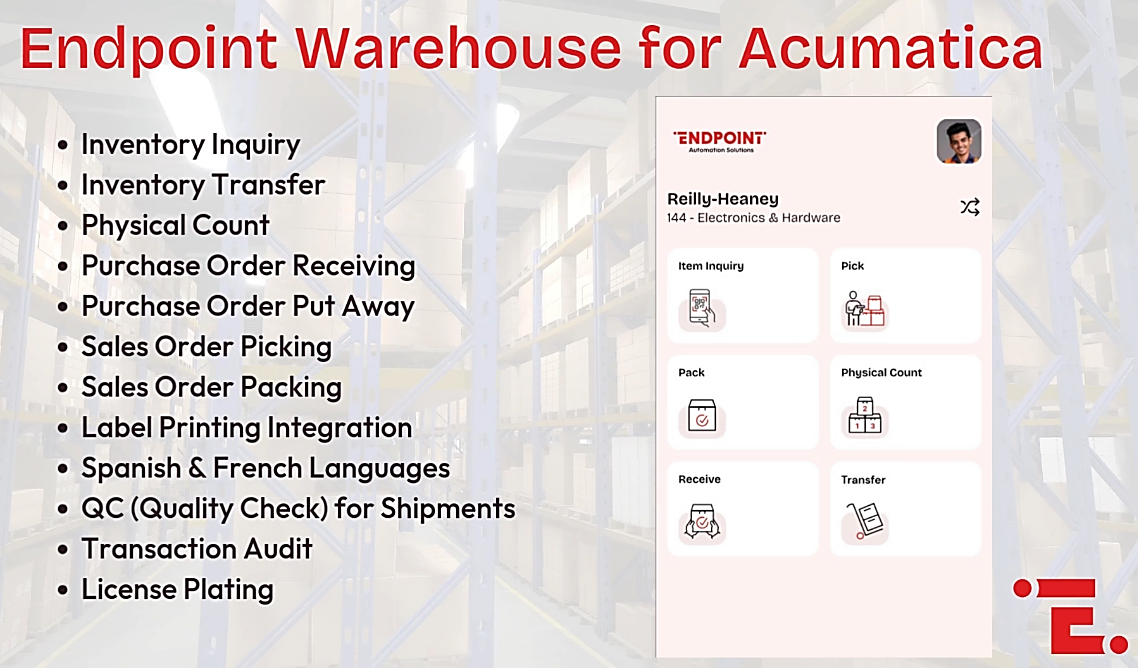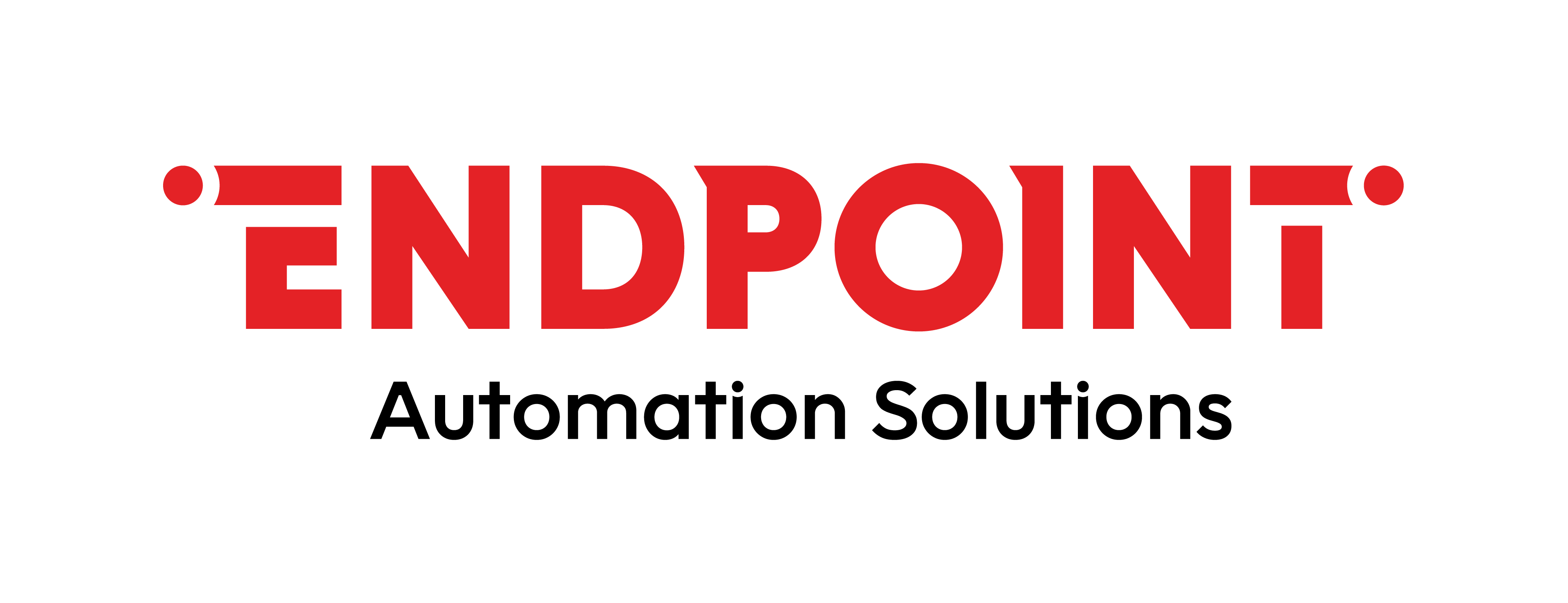March 5th 2025 10:26:27 AM
Supply Chain Manager? Understanding Geopolitical Stressors on the System
November 14th 2023 11:00:00 AM
We have all heard the expression that we live in a global village, which should make communication and doing business much easier. In a perfect world, a company’s supply chain would work seamlessly. The COVID-19 pandemic definitely exposed weaknesses in supply chains worldwide. The many ongoing civil wars and global armed conflicts are geopolitical events which also create challenges and have the potential to further impact the supply chain.
Armed Conflicts Worldwide
According to the Peace Research Institute Oslo (PRIO), eight wars were waged worldwide in 2022. In addition to the eight state-based armed conflicts classified as wars, another 47 state-based armed conflicts were documented in 38 countries, for a total of 55. Over the past 10 years, state-based conflicts have been at much higher risk of becoming internationalized—which occurs when a third-party government becomes involved by either “contributing or deploying combat personnel in support of the objective of either side.” In addition, there were also 82 non-state conflicts in 2022.
Supply Chain Geopolitical Stressors
Anyone would agree that armed conflict in or near an area where a company is importing or exporting goods makes the process challenging.
Changes in the International System’s Structure
The international system was created in the aftermath of the Second World War to promote prosperity and maintain stability. The World Bank, the United Nations, and the International Monetary Fund are crucial institutions in the international system. This system is not perfect but has supported the ideals of free trade and international development. It is currently under pressure on a couple of different fronts.
There is a higher interest in ensuring that domestic industries are stable and able to provide products and raw materials. Governments are interested in strategic self-sufficiency, which includes on-shore or near-shoring, as opposed to looking to outsource manufacturing to offshore markets.
Anxiety Around Relationships with Trading Partners
At the same time, anxiety levels are climbing among domestic business communities due to concerns about relying too much on select trading partners. There are concerns about slowdowns or complete shutdowns taking place. Other concerns giving supply chain managers cause for concern include:
- Delays in getting orders for inbound and outbound raw materials to manufacturers’ production sites and the finished goods to market
- Threats of insolvency for business partners and customers
- A renewed focus on ensuring that contingency plans focusing on these issues resulted from these business concerns.
Globalization Losing its Luster
In an atmosphere where the general public has become disillusioned with globalization and mistrustful of politicians and business elites, nationalism thrives. International cooperation may seem more difficult to accomplish.
Countries may choose to make rapid changes to their international trade policies. These changes would reflect the country’s political logic of the time as opposed to worldwide economic conditions.
The COVID-19 pandemic may officially be over, but that doesn’t mean that all economies have recovered to the same extent. Within individual economies, the level of recovery also varies, with some industries still struggling. In areas where the recovery is slow, business owners may be distrustful of dealing with international customers.
Be Proactive When Navigating Geopolitical Supply Chain Stressors

Supply chain management always brings with it a certain degree of challenges. Navigating the stressors of the international markets multiplies them exponentially. If you are proactive, you can thrive in this ever-changing sea of supply chain markets.
- Start with a Risk Assessment
This is a situation where you need current information about the countries where your supply chain operates, along with neighboring regions. If, by chance, armed conflict should break out in a country where you normally do business, countries located nearby may be pulled into the war as well simply due to their geographic location.
This is an ongoing project since a country that is currently peaceful could potentially become “hot” with little notice. Have a plan in place to mitigate any disruptions to your supply chain.
- Establish Open Communication with Suppliers
It’s always a good policy to be open with suppliers and partners. By making expectations clear about compliance with ethical standards at the beginning of the business relationship, trust and accountability are established from the outset.
- Work with Multiple Sources for Products or Materials
Seek out sources in multiple countries or regions who can supply the products, parts, or raw materials your company needs. Diversifying makes good business sense, since there is no guarantee that your usual supplier will always be able to continue working with your company.
- Use Modern Technology to Analyze Data and Stay Agile
When your company is accessing products using an international supply chain, staying agile to lower risk and improve traceability becomes even more important. Modern technology gives you the data needed to make better, more informed decisions about when to place larger orders and when it’s a better idea to hold off and consider alternate sources.
Scanco Gives you Complete Supply Chain Automation
We live in a time when the risks and potential rewards make for great excitement in the global village. Scanco is uniquely qualified to work with your company to offer you complete supply chain automation to help your company meet (and exceed) its goals. We bring Warehouse Automation and Manufacturing Automation to the table to improve your experience with Sage 100.
Through our valued Technology Partners, we can give you the power of a combined solution from some of the most respected supply chain solutions on the planet.
To learn more about how Scanco can help you automate your supply chain and improve your bottom line, contact us online, or call (330) 645-9959 to make an appointment with a Scanco Solutions Expert today.













